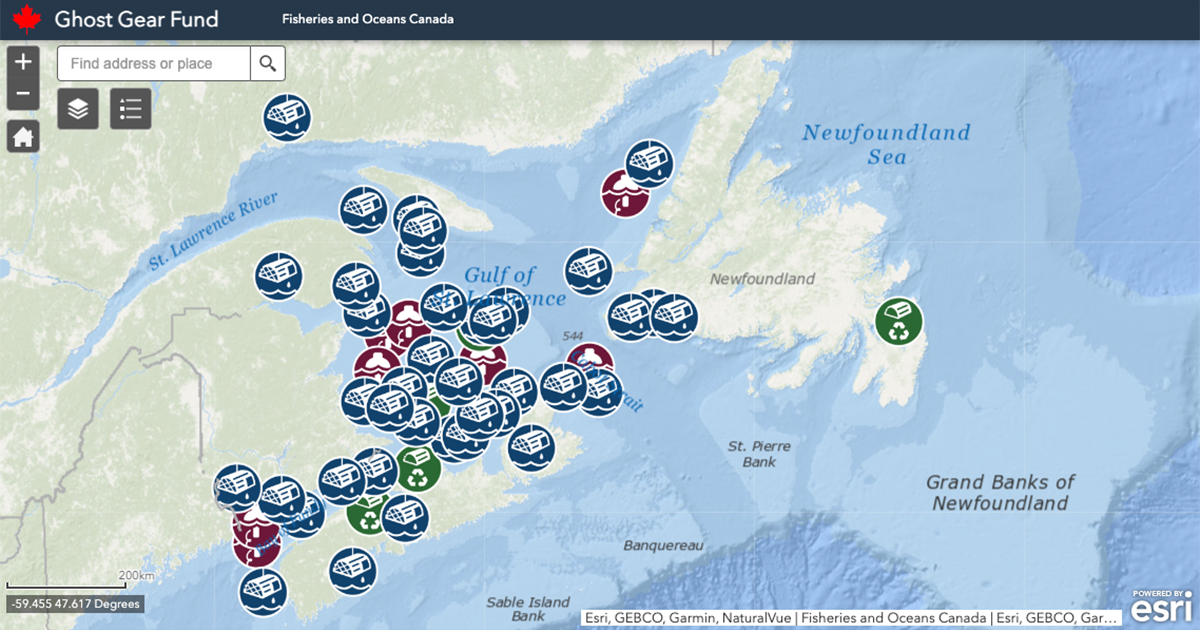The Government of Canada is working hard to protect our oceans and the marine life they sustain. Lost, abandoned, and discarded fishing gear, or ghost gear, is a significant source of plastic pollution that can stay in our water for hundreds of years, causing harm to marine mammals, fisheries, and habitats. Severe weather is one of the primary reasons for fishing gear loss, as was seen when Hurricane Fiona touched down in Eastern Canada in September 2022.
On this Earth Day, as we are reminded about the negative effects of plastics to our environment, the Minister of Fisheries, Oceans and the Canadian Coast Guard, the Honorable Diane Lebouthillier announced that the $30 million Hurricane Fiona Ghost Gear Fund, launched after Hurricane Fiona touched down in Atlantic Canada in 2022, contributed to the retrieval of over 22,205 units, or 695 tons of lost gear, as well as 453 km worth of rope in areas hardest hit by the hurricane.
The Hurricane Fiona gear clean-up was an investment under the Ghost Gear Fund. From 2020 to 2024, the Ghost Gear Fund contributed a total of $58.3 million to 144 projects (134 in Canada and 10 abroad), enabling the retrieval of over 36,049 units, or 2,233 tons of gear, as well as 858 km worth of rope. The funding also supported fishing gear recycling projects, technological research, and international partnerships to reduce and find lost gear.
Building on the success of the Ghost Gear Fund, Fisheries and Oceans Canada is now working on an action plan to prevent fishing gear loss in the future. We will continue to support our partners in their efforts to keep our waters free from fishing gear debris to safeguard animals, fish stocks, and the marine environment for future generations
“Earth Day is a reminder to us all that we need to work together to protect our natural environment. I would like to thank all our partners for their hard work in helping to clean up the fishing debris lost in our waters. Ghost gear threatens the sustainability of fisheries, which harms the economic prosperity of coastal communities. Tackling ghost gear is a group effort, and I look forward to continuing working together with harvesters and other partners,” stated the Honorable Diane Lebouthillier, Minister of Fisheries, Oceans, and the Canadian Coast Guard.
“In my community I saw firsthand Hurricane Fiona’s destruction, which was not only on land but in the water. I would like to applaud the work of fund participants who retrieved a tremendous amount of lost fishing gear in Eastern Canada. Their hard work has made a difference in keeping the environment clean and our fisheries prosperous for future generations,” added Mike Kelloway, Parliamentary Secretary to the Minister of Fisheries, Oceans, and the Canadian Coast Guard.
Quick Facts
- All commercial harvesters in Canada are required to report lost gear to DFO. This data allows for targeted retrieval efforts and the implementation of tools that will help to prevent future gear loss.
- In addition to funding projects for retrieval and workshops in Central America, West Africa, and Pacific island countries, Canada is part of numerous international commitments and initiatives to address ghost gear. This includes the United Nations Environment Program’s Global Partnership on Plastic Pollution and Marine Litter and the Global Ghost Gear Initiative.



